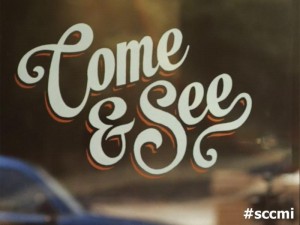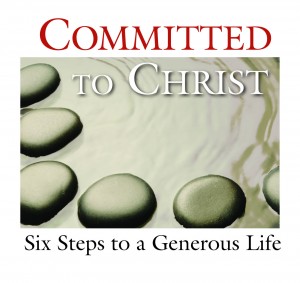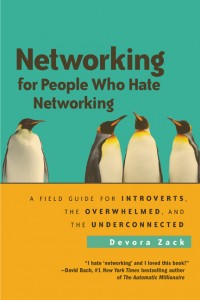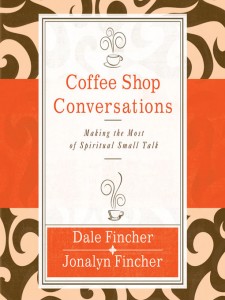The Gospel of the Nobodies: The Discouraged and Disbelieving *
Sycamore Creek Church
March 20/21, 2016
Tom Arthur
Peace friends!
What’s your faith story? I grew up in a Christian home and was very active in church all the way through graduation from high school. When I went off to college I began to ask a lot of questions about the faith I had growing up. Those questions and my doubts and uncertainties grew to a climactic moment my sophomore year in college. I was sitting in an orchestra concert. The band was playing a chaotic piece that was a tribute to D-Day. There were trumpets placed all around the auditorium and they were making random noises. The music was intended to create the feeling of landing on the beaches of Normandy and having snipers shooting at you. The music began to symbolize for me my inner state. I felt the snipers of discouragement and disbelief shooting at me from every angle. The arrangement of that piece of music slowly but surely morphed into the classic hymn, It Is Well. The chorus from that hymn goes: It is well, with my soul. The hymn was intended to make you feel secure amidst the chaos of the beginning of the piece, but because I was uncertain about this whole faith thing and it was not well with my soul, the hymn only amplified the chaos I felt inside. I fell apart right in the middle of that big auditorium crying and sobbing into my hands so that no one would see me. Over the next several months I left the faith. I didn’t believe any of it any more. And yet, I somehow kept following Jesus. And here I am today, still following Jesus helping others follow Jesus amidst their own doubts and uncertainties.
Here’s the problem that many of us face: We think that following Jesus is for those who have it all together. But the point of this message is this: following Jesus is for the discouraged and disbelieving.
Today we continue a series called The Gospel of the Nobodies. The point of this series is that God relentlessly pursues those whom society (or even the church) considers “nobodies”: The night shift workers, the disabled and sick, the demon possessed, the prostitutes and prodigals, the homeless, and today we’re looking at how God relentlessly pursues the discouraged and disbelieving.
We’re going to do something weird today. This whole series has been a little weird. Easter is next week, but we’re going to look at some stories that take place after the resurrection. We’re going to jump to the resurrection so that when we celebrate it, we’ll realize it isn’t just for the ones who’ve got it all together.
Throughout this series we’ve been looking at the Gospel of Luke. Gospel means “Good News” and Luke tells the story of the good news of Jesus with special attention to the people that society considers “nobodies.” Let’s look at the last chapter of Luke’s Gospel:
While they were talking…Jesus himself stood among them and said to them, “Peace be with you.” They were startled and terrified, and thought that they were seeing a ghost. He said to them, “Why are you frightened, and why do doubts arise in your hearts? Look at my hands and my feet; see that it is I myself. Touch me and see; for a ghost does not have flesh and bones as you see that I have.” And when he had said this, he showed them his hands and his feet. While in their joy they were disbelieving and still wondering, he said to them, “Have you anything here to eat?” They gave him a piece of broiled fish, and he took it and ate in their presence.
~Luke 24:36-40 NRSV
In the last few verses of the last chapter of Luke, the followers of Jesus find an empty tomb, but joy and excitement weren’t the first emotions. Their first emotions were discouragement and disbelief. Let’s unpack this experience that they must have been having by looking at the bigger context of the crucifixion and resurrection.
The crucifixion and resurrection took place in Jerusalem over the Passover celebration. Passover is the celebration of the Israelites’ deliverance from slavery in Egypt. Pharaoh’s heart got harder and harder as Moses kept coming back to him demanding that the people be freed from slavery. It took death to finally soften Pharaoh’s heart. The Israelites were told to take the blood of a lamb and put it over their doorposts so that the angel of the Lord would pass over their house and not kill the first-born child. Passover is the annual retelling and remembering of that moment of deliverance when God freed the Israelites from slavery in Egypt. We learn from that story that God will be faithful no matter what.
During the celebration of Passover Jerusalem swelled from a population of about 100,000 to over a million. This was all in one square mile of land. Jerusalem is completely overrun with people at Passover. This means that at the crucifixion of Jesus, hundreds of thousands likely saw him hung on the cross. So when reports began spreading that he had resurrected there were likely a variety of responses. Thousands on the hillside of Golgotha saw him dead. Imagine the dismissive disbelief of thousands at the news of his resurrection. Then there were the devout followers of Jesus who likely would have been shocked and discouraged. The outcasts who had been welcomed, the paralyzed who was healed, the Centurion soldier’s servant who was healed, the demon possessed who had been set free, the tax collectors who had been shown love, the prostitutes who had been respected as more than just a sex object. These followers would have likely been thinking, “The only one who had ever treated me as human being was nailed to the cross, and now his body’s not in the tomb?!”
Then there is the response from the inner circle, the disciples, both the men and women who traveled with him everywhere. The women were the first to attend to Jesus’ dead body and they were the first to find the tomb empty:
While they were perplexed about this, suddenly two men in dazzling clothes stood beside them. The women were terrified…
~Luke 24:4-5 NRSV
They’re perplexed and terrified at the empty tomb. So they go back and tell the men what they’ve found:
But these words seemed to them an idle tale, and they did not believe them.
~Luke 24:11 NRSV
The men don’t believe them. I mean, how reliable really is a woman? Or so their culture said. All of them are disbelieving, except Peter. Kind of. Peter runs off to see what was going on at the tomb. After he finds it empty, what was Peter thinking as he walked back from the empty tomb? What have I lost over the last three and a half years? Can I get my fishing business back? What about the others? The women who experienced fear are having their hearts beginning to open up to hope. What about James and John? They’re probably wondering, “Can we show our faces in Galilee without being the laughing stock of the town?” The empty tomb is not met with joy, but outright disbelief and discouragement. Nothing was working out the way they had envisioned it would, the way they’re supposed to. That’s a recipe for discouragement.
We all experience discouragement from time to time. Some of us more often than others. Things don’t go the way they’re supposed to go. We are disappointed that God didn’t make them go differently. You invest in a company over decades and you get a pink slip instead of a pension. You go to the doctor and before she says anything, her face tells you, “The cancer has returned.” You get the late night phone call that tells you “I’m sorry, your loved one is gone.”
I experienced a bit of discouragement recently. Not quite to the level of the above scenarios but discouragement nonetheless. The night before we were to fly to Florida to visit family I got sick. Really sick. I had a 101 degree temperature. I was shivering uncontrollably. My teeth were chattering like one of those teeth-chattering toys. I had cramps in my abdomen. It felt like someone was jabbing me up under my ribs. We had to make a decision, and expecting that I was the first wave of a round of all-family illness we canceled our flight to Florida and dug into the discouragement of February in Michigan. That’s not how things are supposed to go. Discouragement.
Part of what Luke wants us to see in the discouragement and disbelief of the first Easter is for us to see ourselves in the disciples. Where are you experiencing discouragement right now?
Right about this point Luke shifts the focus of the story out of the inner circle and looks wider. We find that discouragement and disbelief don’t stop God from displaying the power of the resurrection. Besides the women, the first people Jesus appears to after his resurrection are two people with no other mention in the Bible. Two “nobodies” in the church.
Now on that same day two of them were going to a village called Emmaus, about seven miles from Jerusalem, and talking with each other about all these things that had happened. While they were talking and discussing, Jesus himself came near and went with them, but their eyes were kept from recognizing him…
~Luke 24:13-16 NRSV
Jesus appears to Cleopas and one other unnamed person who are walking on the road to Emmaus. They don’t recognize him. Perhaps this was because they didn’t know him well enough to recognize him. Jesus explains the scriptures to them, and while eating, they realize it is Jesus. (This is why we have an “open table” at communion. Many who don’t recognize Jesus may meet him while sharing a meal with him.) Notice that Jesus doesn’t appear first to the “inner circle”, the remaining eleven disciples. Jesus doesn’t appear to Pilate and the religious leaders saying, “Ha. Ha. Joke’s on you. I get knocked down, but I get up again.” Jesus showed up to the low-profile followers who aren’t mentioned anywhere else in the Bible. It’s as if Jesus is saying, “I don’t care how much you’re known or not. I have come to bring you hope.”
Why would Jesus show up to the low-profile followers? Because God relentlessly pursues those whom society and even the church considers as “nobodies.” Jesus had a bigger vision. It’s not just the high profile few to bring the message of Jesus’ good news. It’s not just the twelve high-profile who brought the gospel to the world. Everyday ordinary people brought the gospel to the world. People who were never even given a name.
After this encounter with the “outer circle” Jesus appears to the inner circle. Jesus appears next to his doubting and disbelieving apostles. They thought they were seeing a ghost! They were terrified.
Then Jesus opened their minds to understand the scriptures, and he said to them, “Thus it is written, that the Messiah is to suffer and to rise from the dead on the third day, and that repentance and forgiveness of sins is to be proclaimed in his name to all nations, beginning from Jerusalem. You are witnesses of these things.
~Luke 24:45-48 NRSV
Because Jesus showed up first to the “outer circle” I think that “you are my witnesses” means all of you. Not just the “up front” people at Sycamore Creek. But the “outer circle” of Sycamore Creek. Those who may not have a “title” or even a “role” at the church, but you’re just walking on the road following Jesus. You are Jesus’ witnesses. You are those who are to proclaim the good news of Jesus to the “nobodies” of our society. Jesus is shared most expansively through ordinary everyday disciples.
Let’s consider how this works for a moment. Jeremy invited Jim Firos to Sycamore Creek. But Jim has invited countless people including Linda and John. John then invited his daughter Heather and RJ and their kids. Jim also invited Jessica and Shawn. And Jessica and Shawn invited his parents Jerry and Mary, their friend Maria and her daughter, and their neighbors Jessica and Alehandra. Alehandara invited his dad Jim. Everyday followers of Jesus being witnesses and proclaiming the good news of Jesus.
Or consider this. Jenna and Blake invited Jenna’s sister, Pam. Now Pam is full of all kinds of doubts and uncertainties about this whole faith and church thing. But she became a partner several years ago and plays and sings in the band. She invited Justin, who was baptized and is now on staff at our church. Pam also invited her friend Liz who invited her friend Brian. But let’s not stop there. Because Pam, remember she’s someone with lots of questions about faith, also invited her friend Katie who was baptized this past summer and has joined the band. Katie then invited her wife Nikki. Katie also invited her parents Nancy and Dwayne and her sister Aubryn who played with Jeremy at Teen Fuel Café last Sunday night.
Next week is Easter. Who are your friends who are discouraged and disbelieving? Who needs to hear the good news of Jesus? What three friends can you invest in and invite to Easter? It’s not just the pastor’s job to invite people. It’s not just the “inner circle” who invites people. It’s every unknown and unnamed follower of Jesus. Who is God calling you to invite?
Prayer
God, give me faith when I don’t have faith. Give me the power of your resurrection at work in my life even when I am discouraged and disbelieving. Help me follow you. And open the door for me to invite those around me who are wrestling with discouragement and disbelief. Soften their hearts so that they might join me in seeking you as we celebrate the resurrection of Jesus. Amen.
*This sermon is based on a sermon first preached by Glen Shoup









Recent Comments